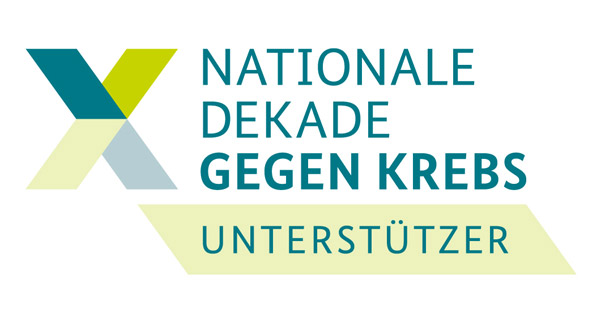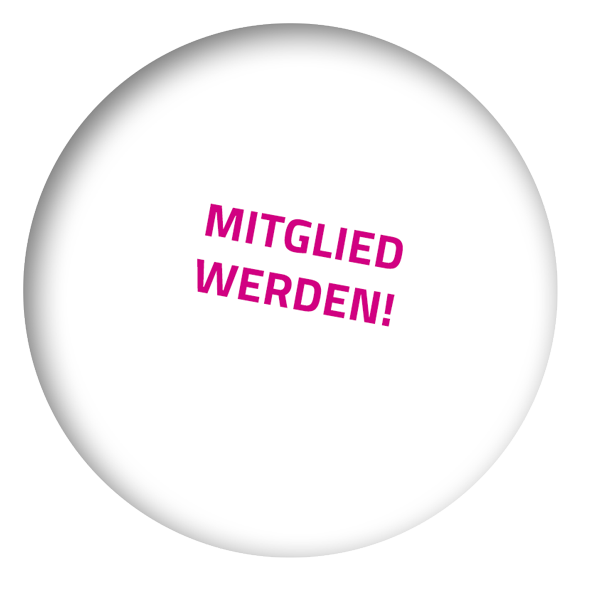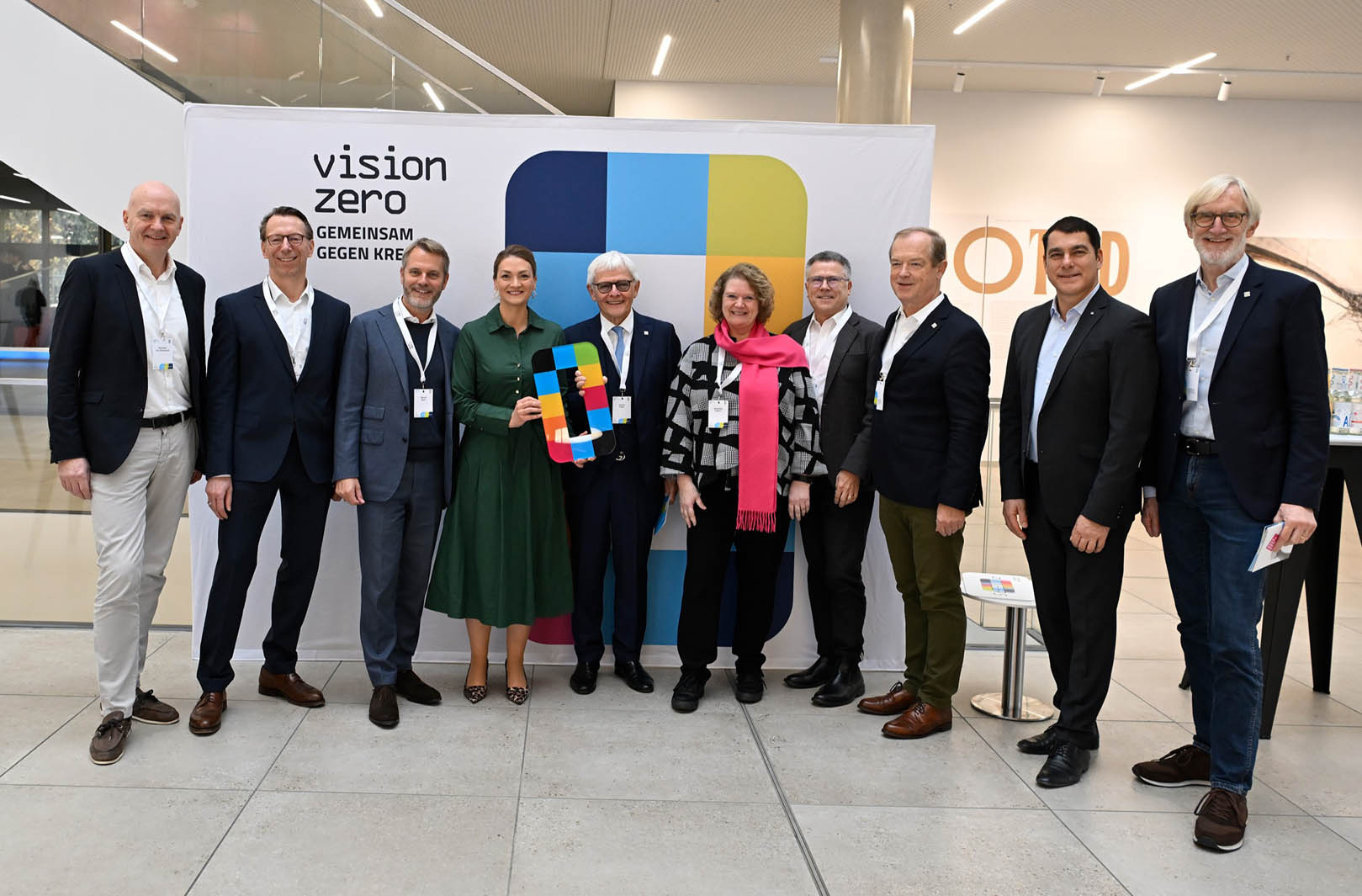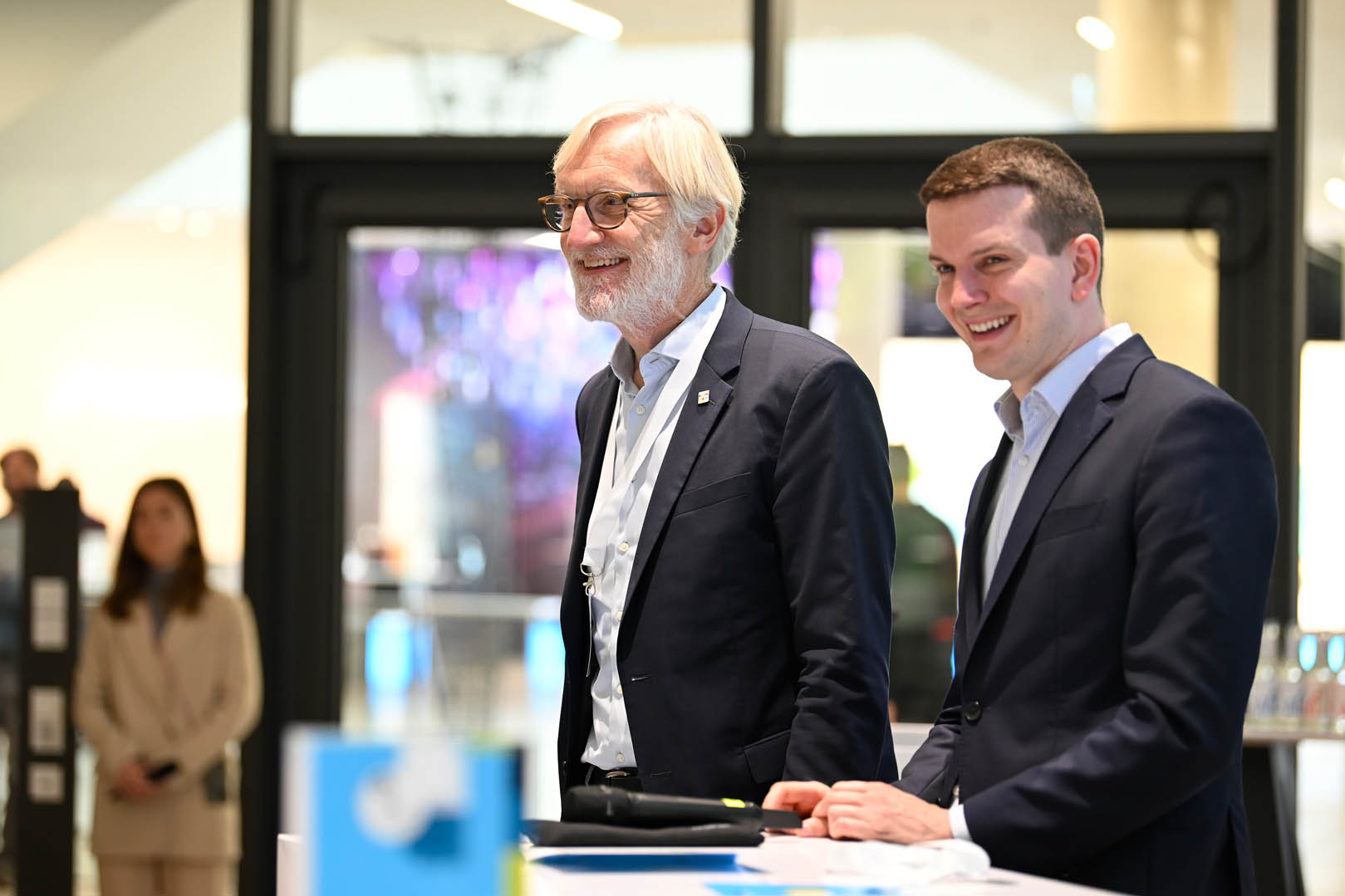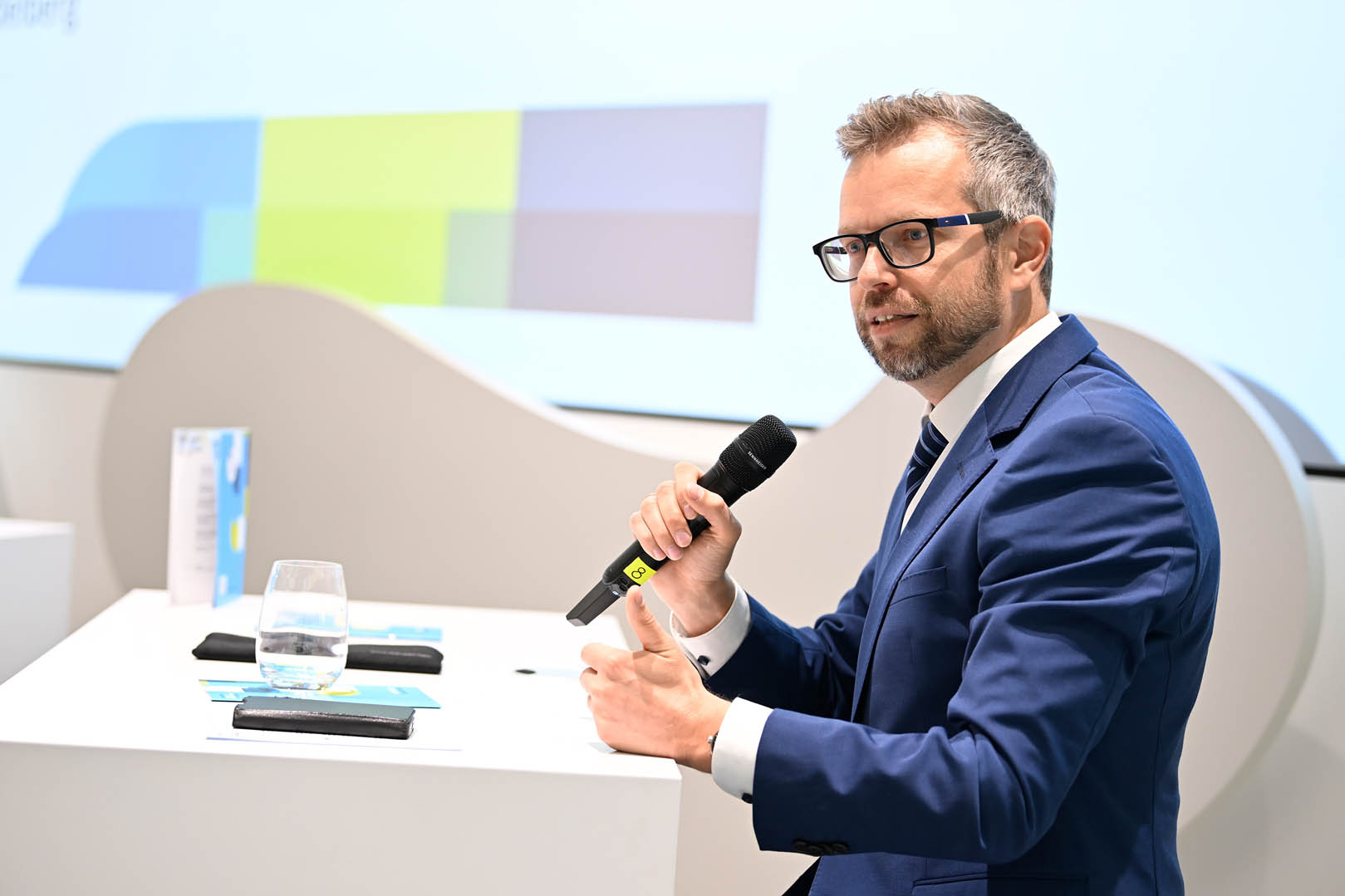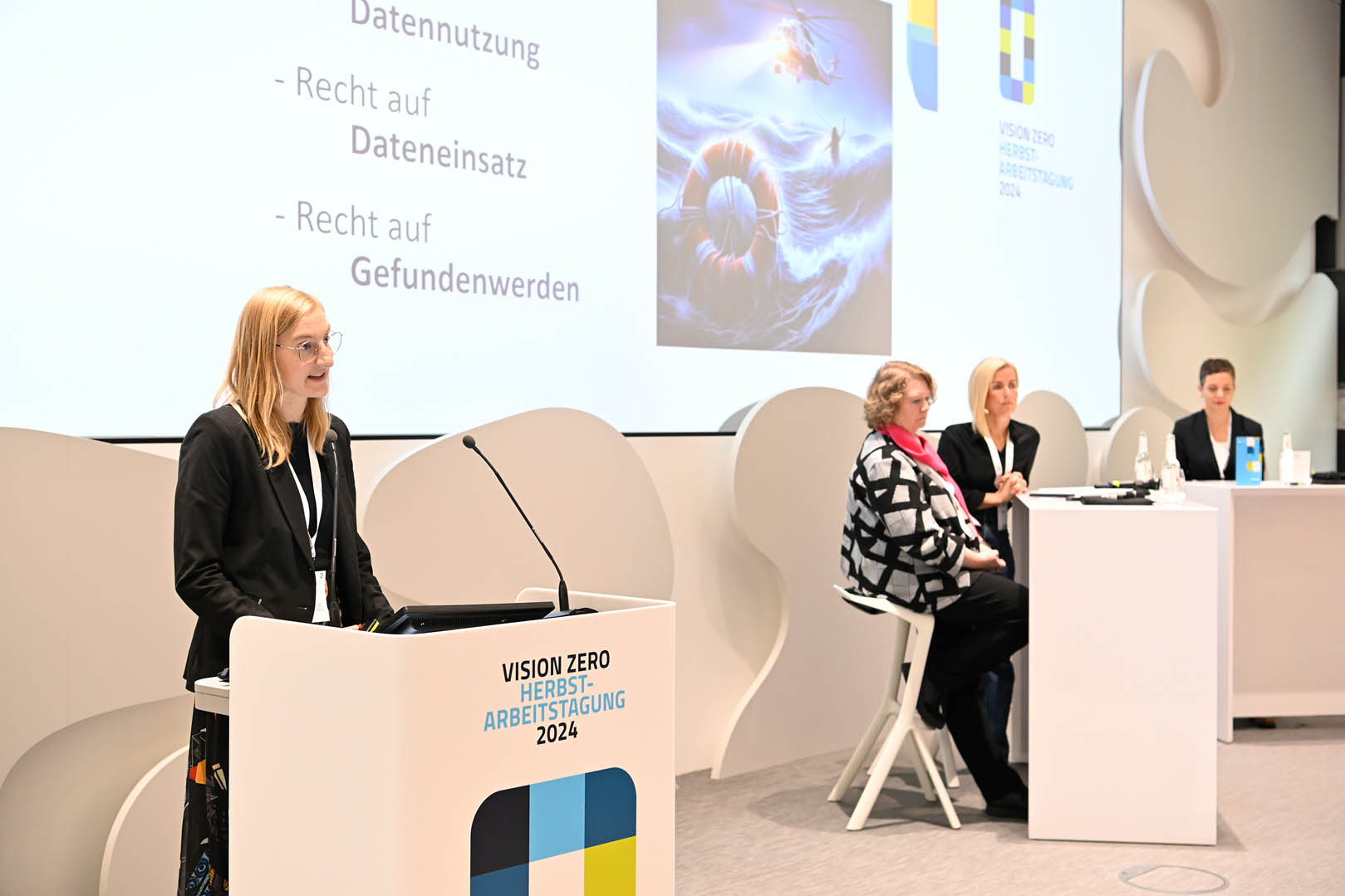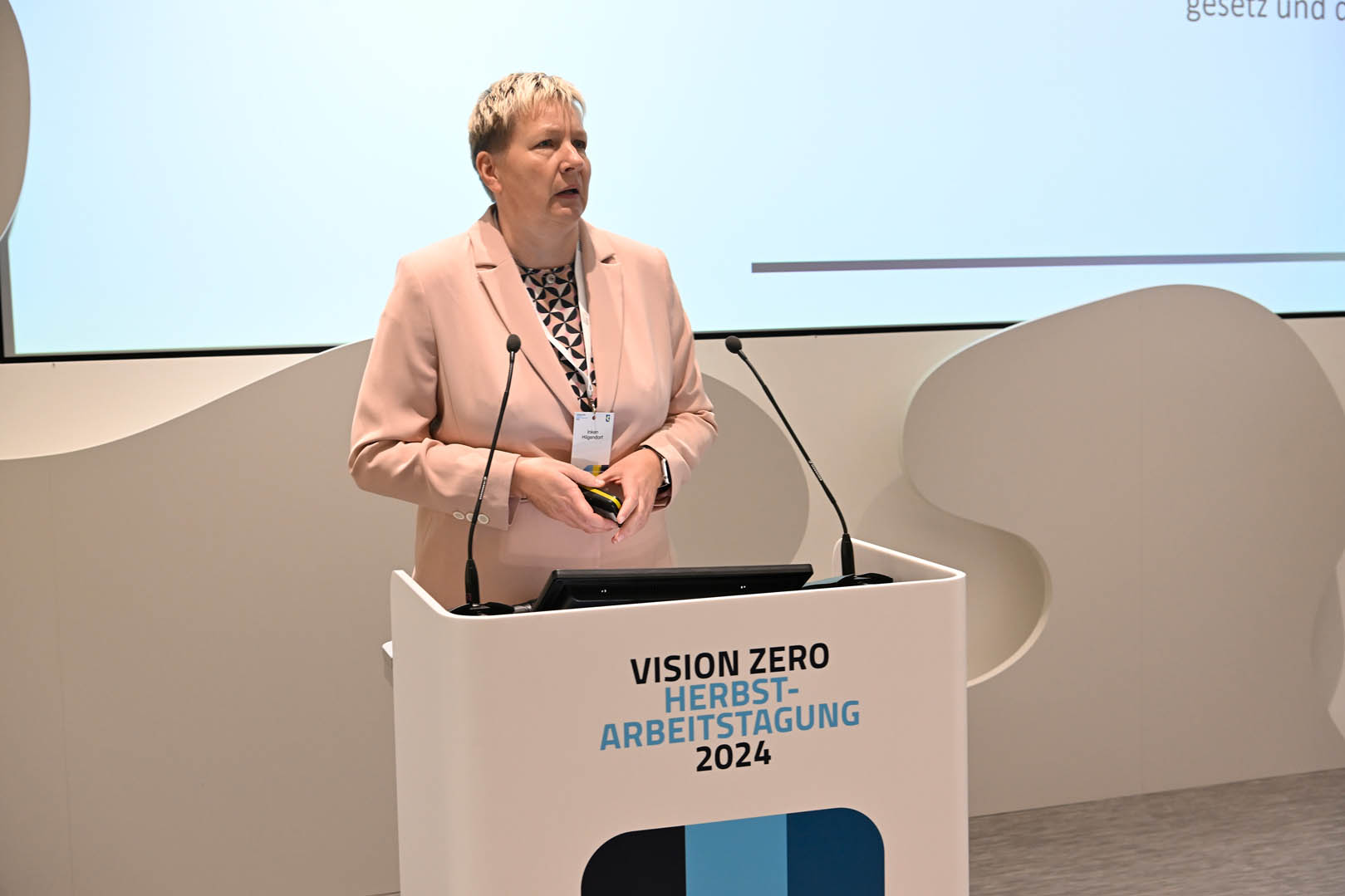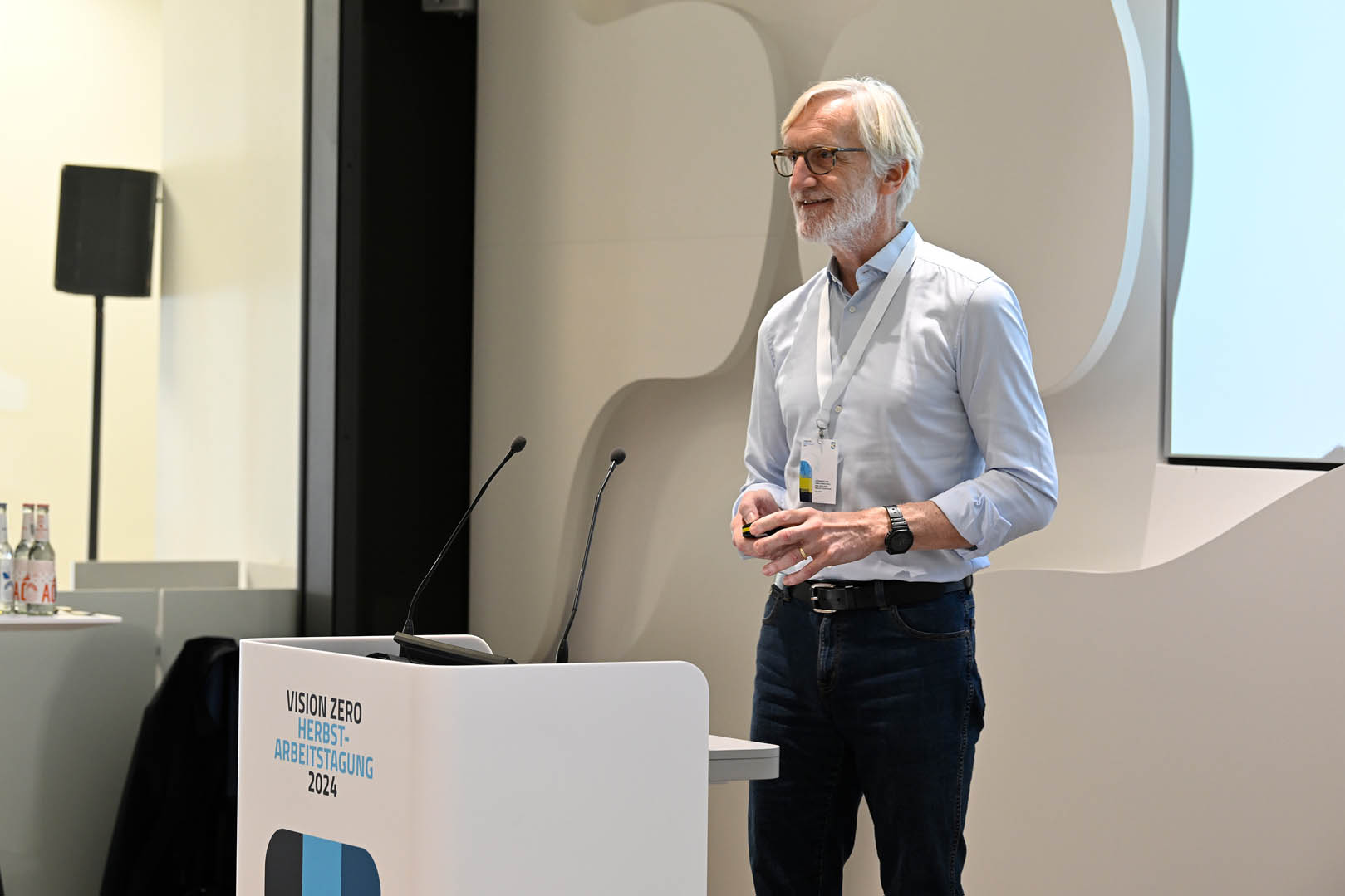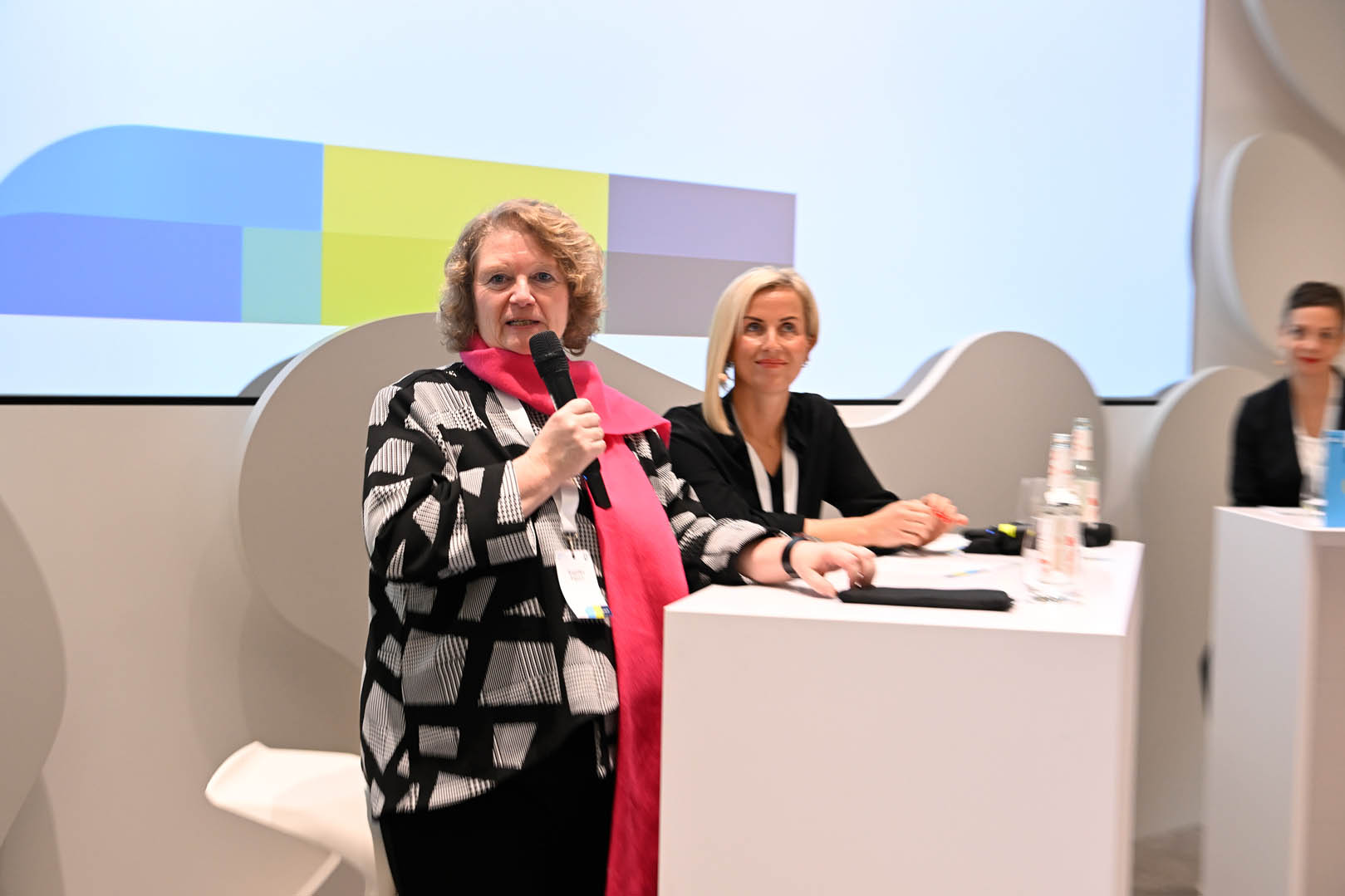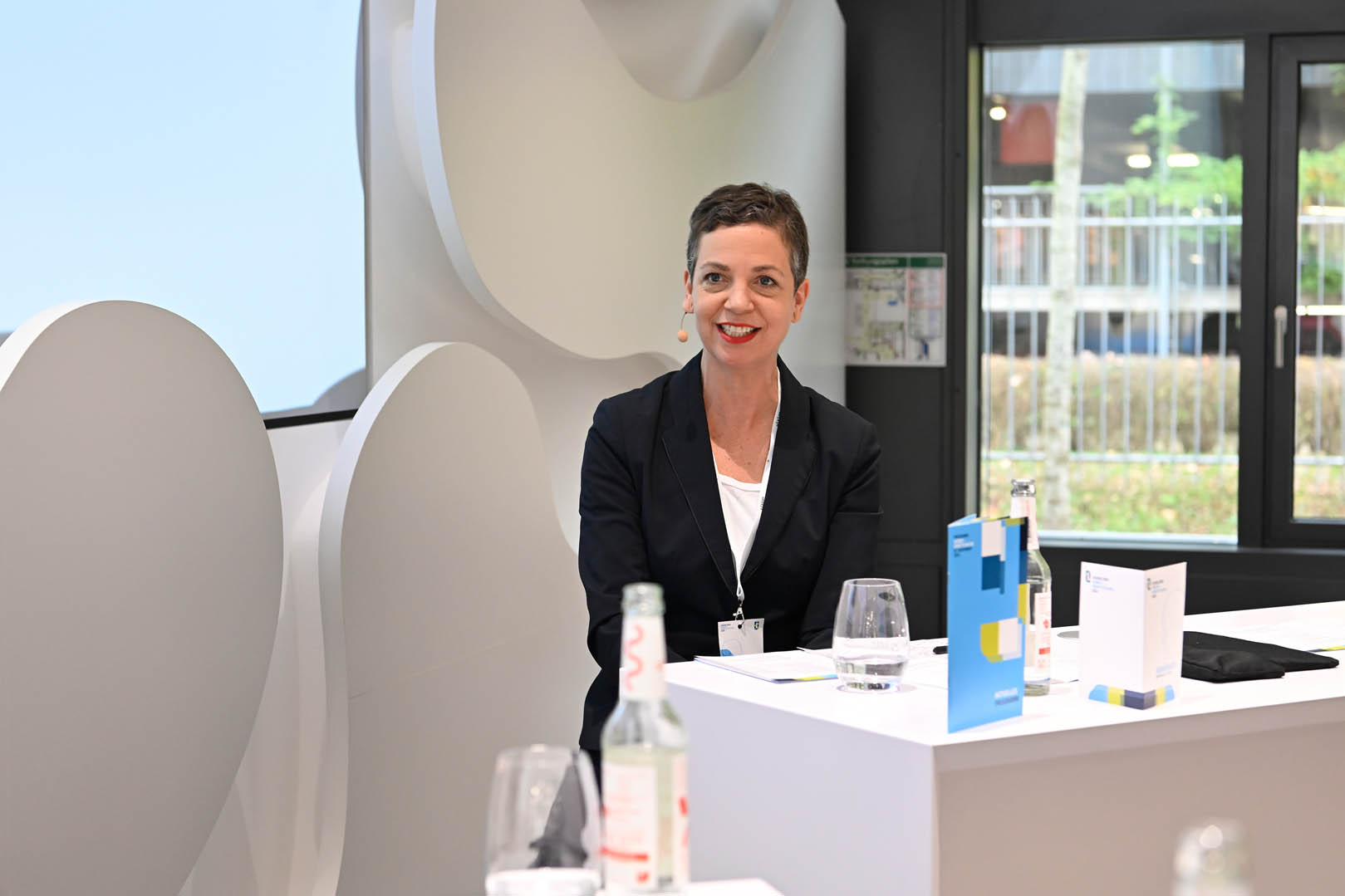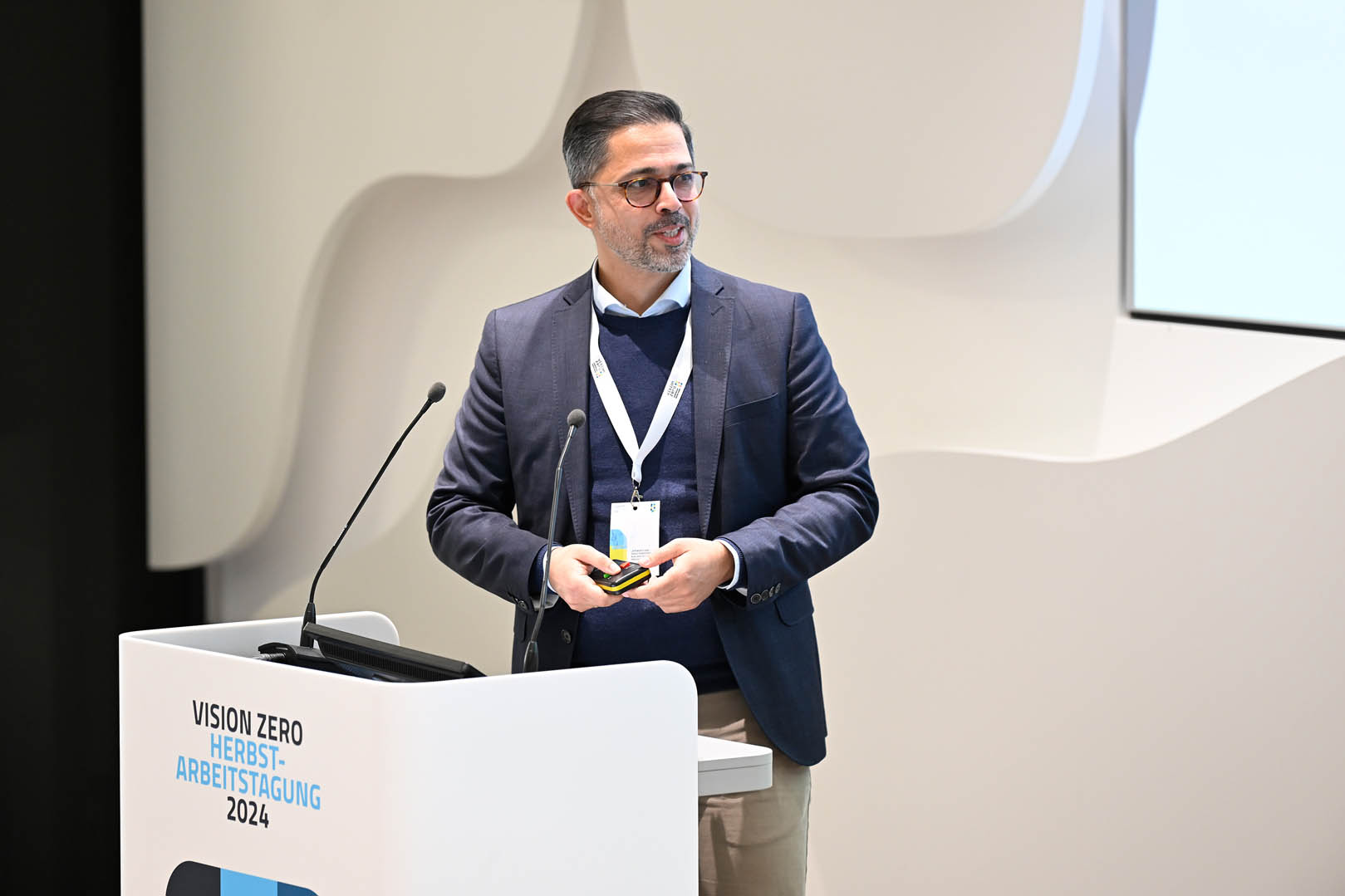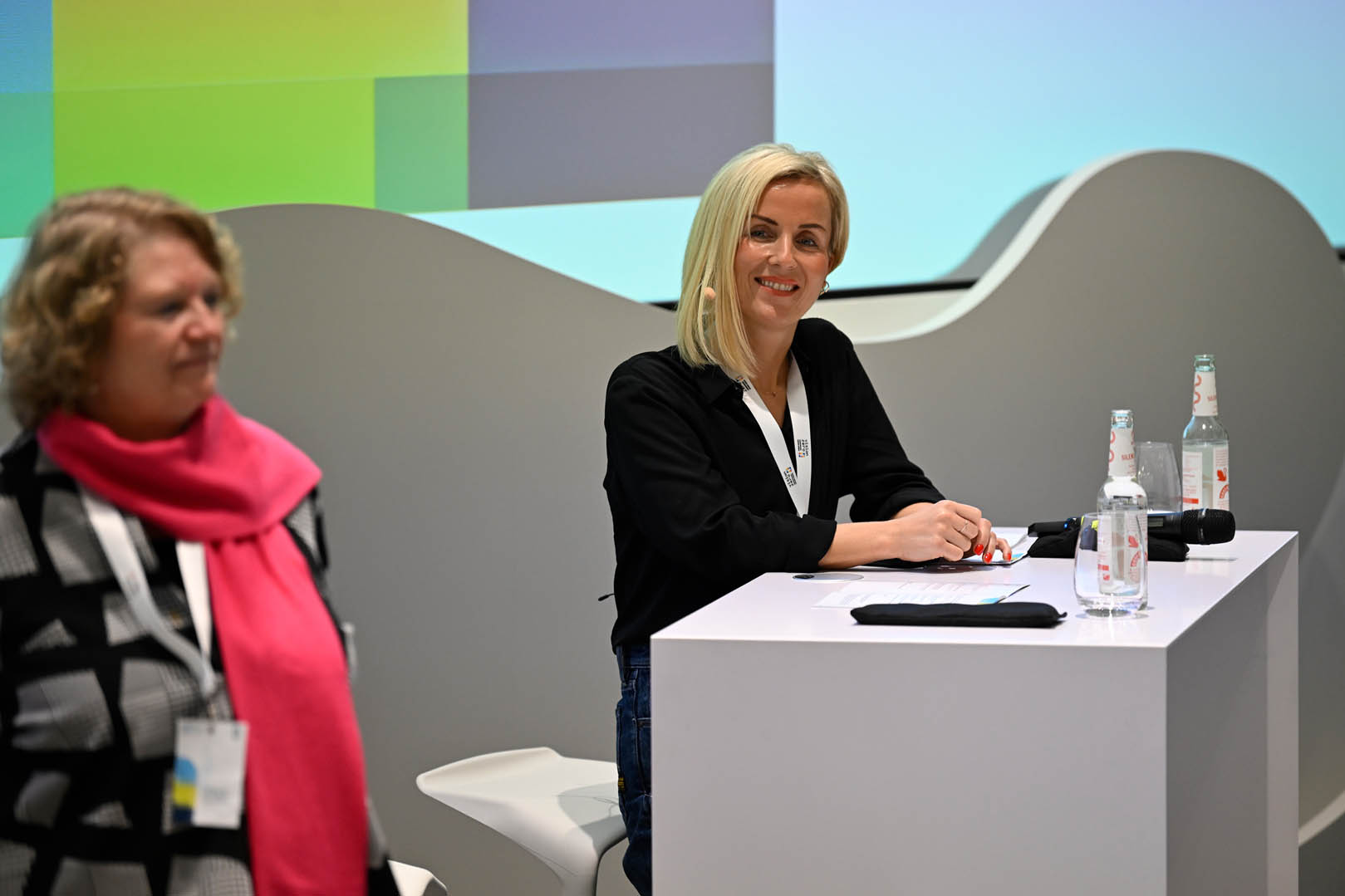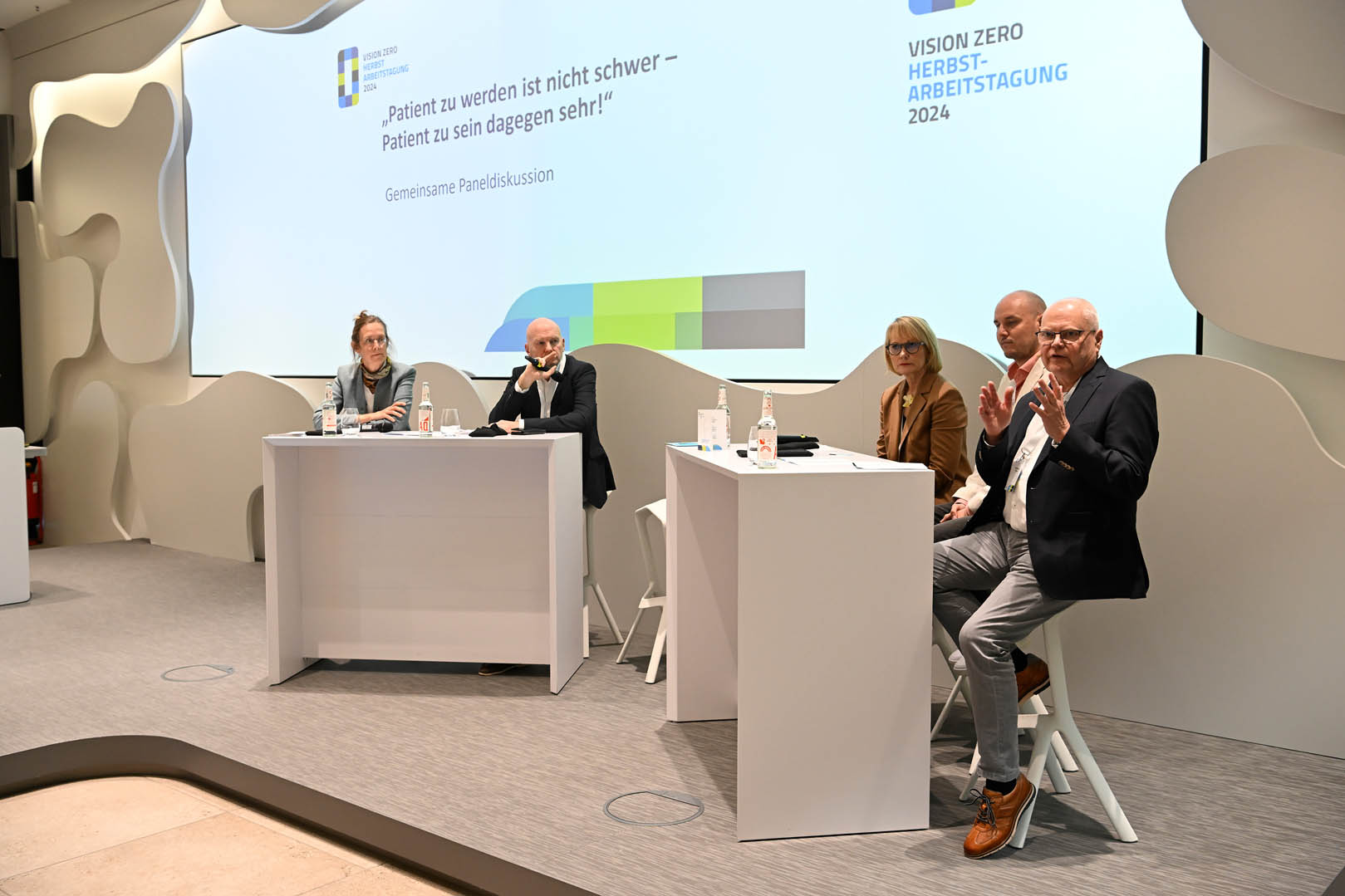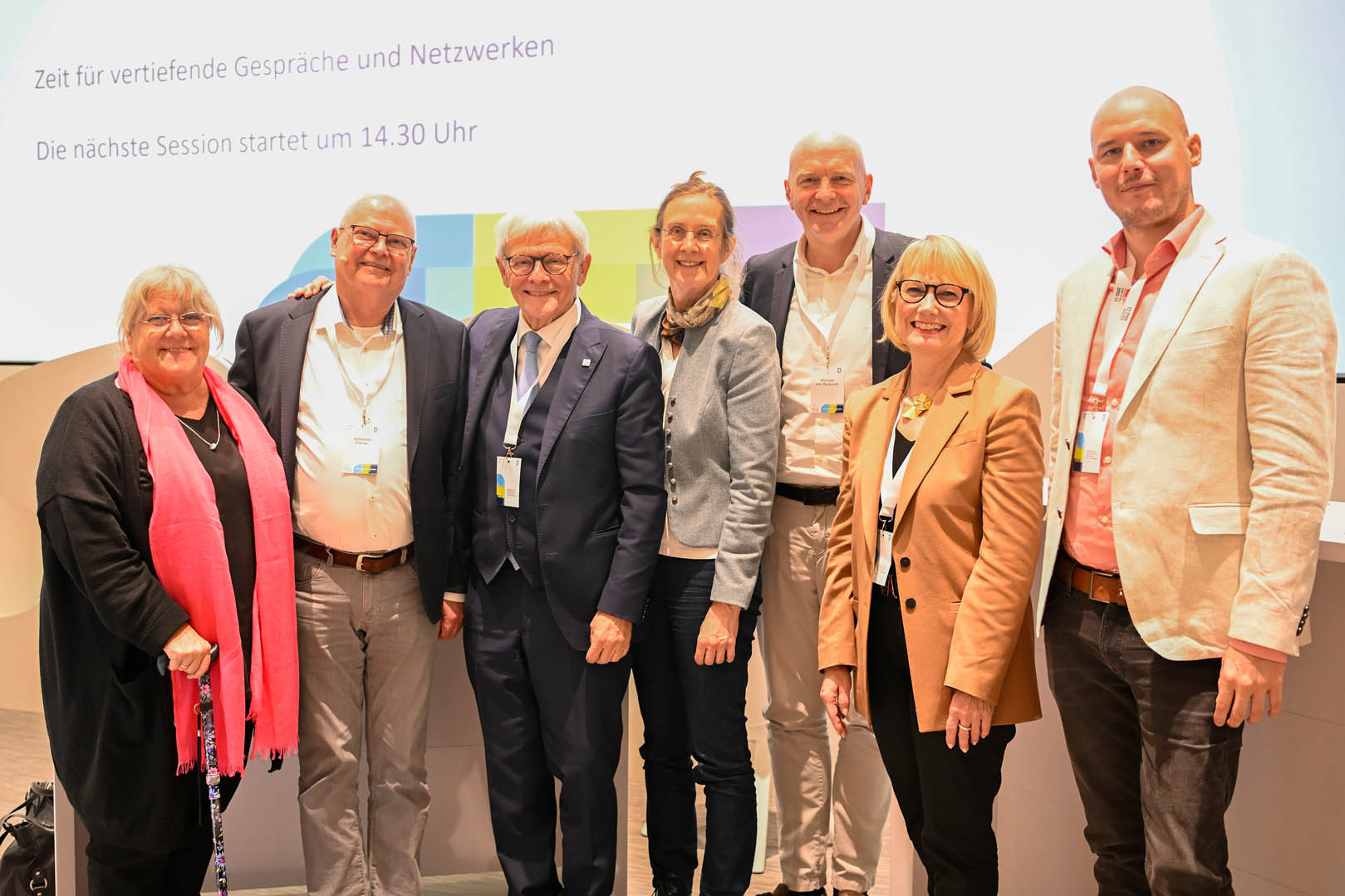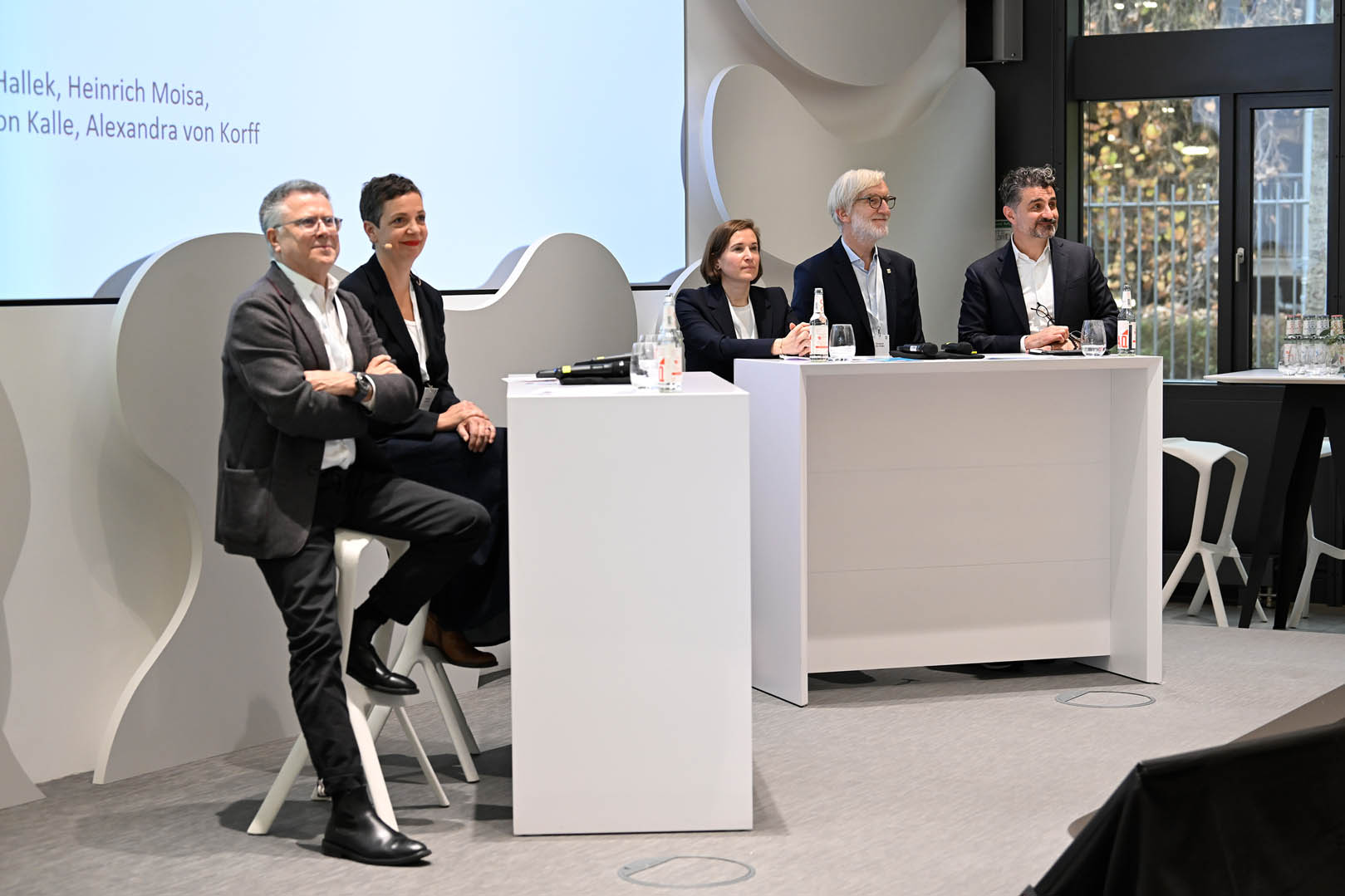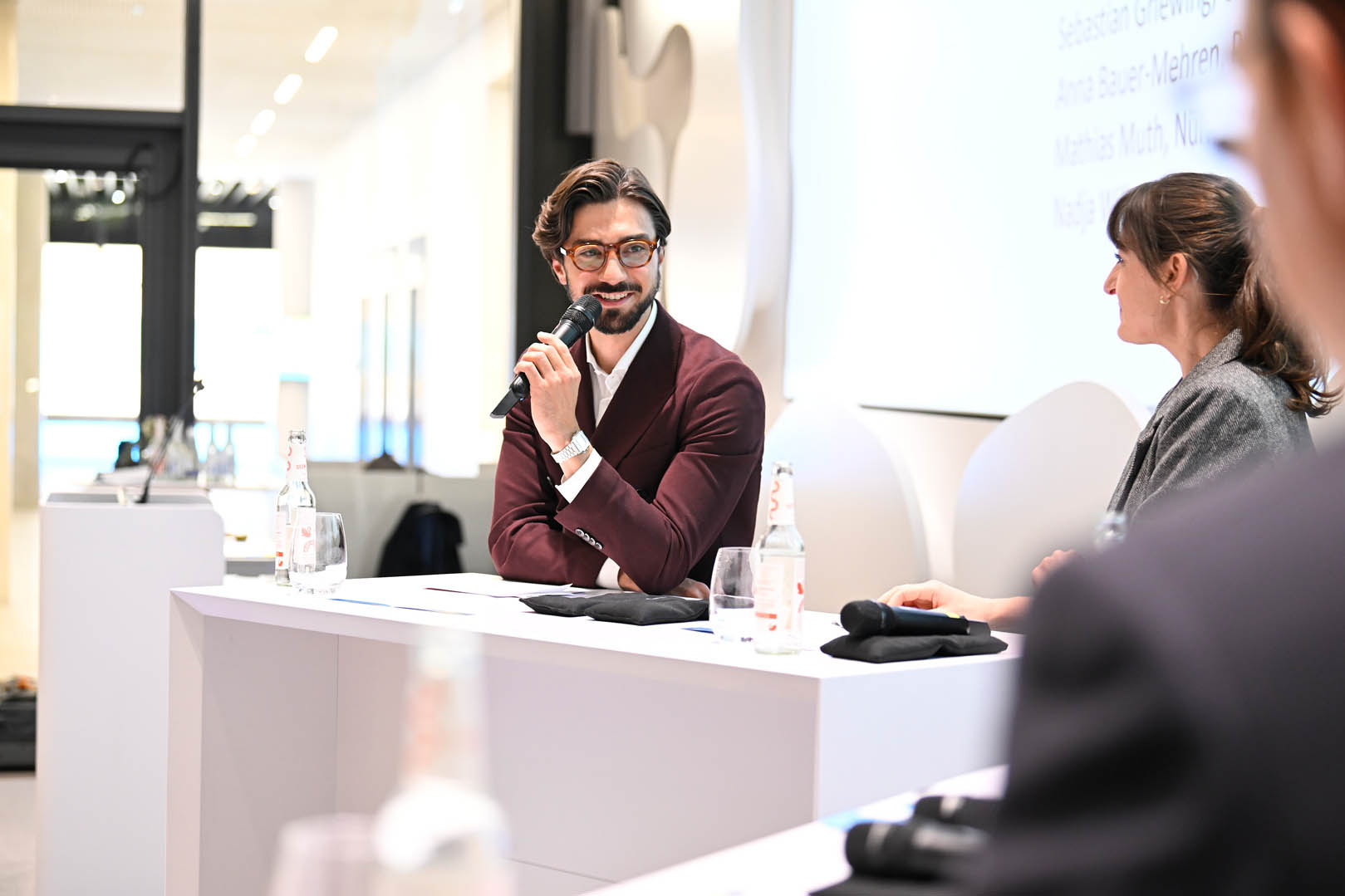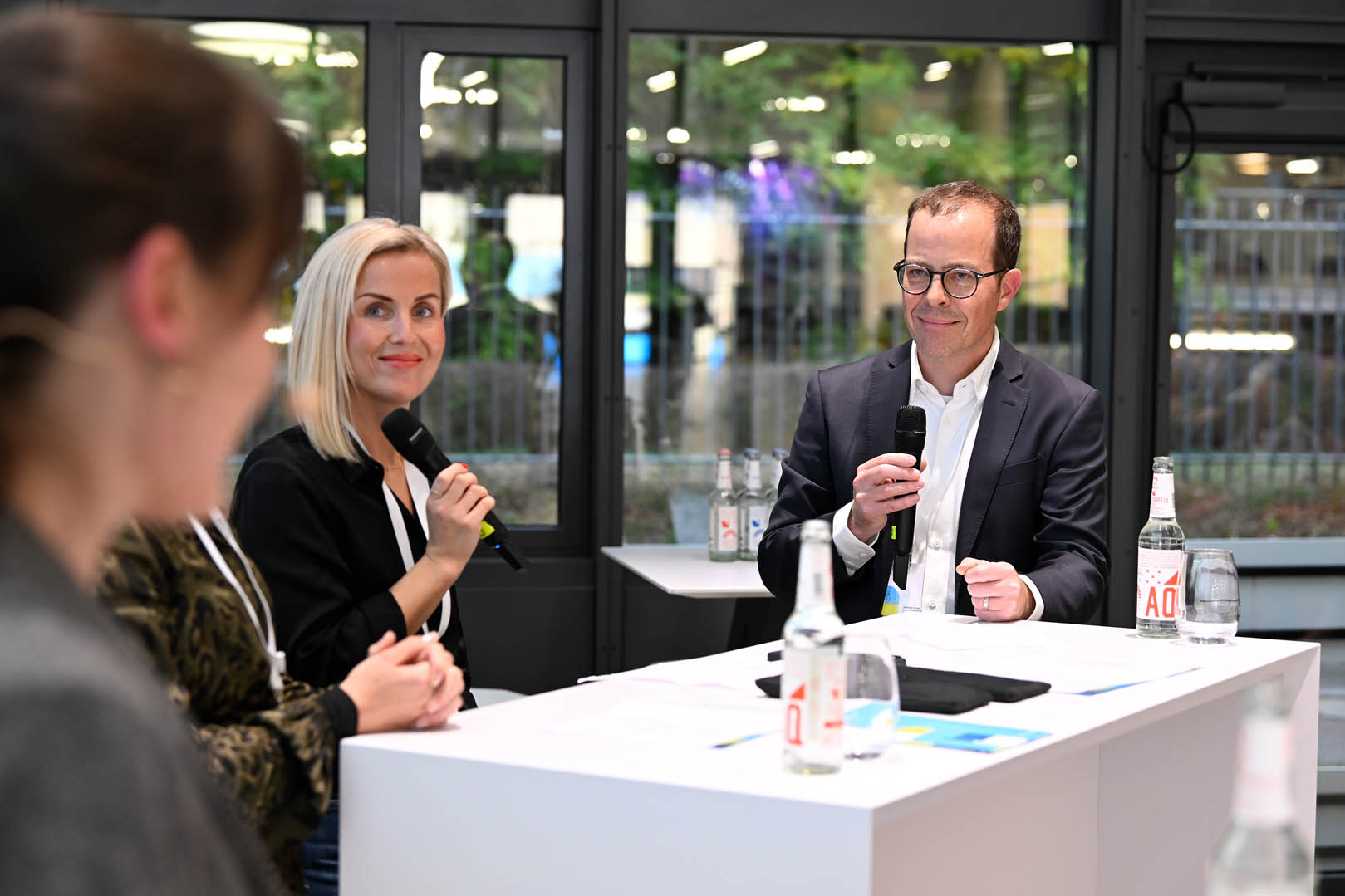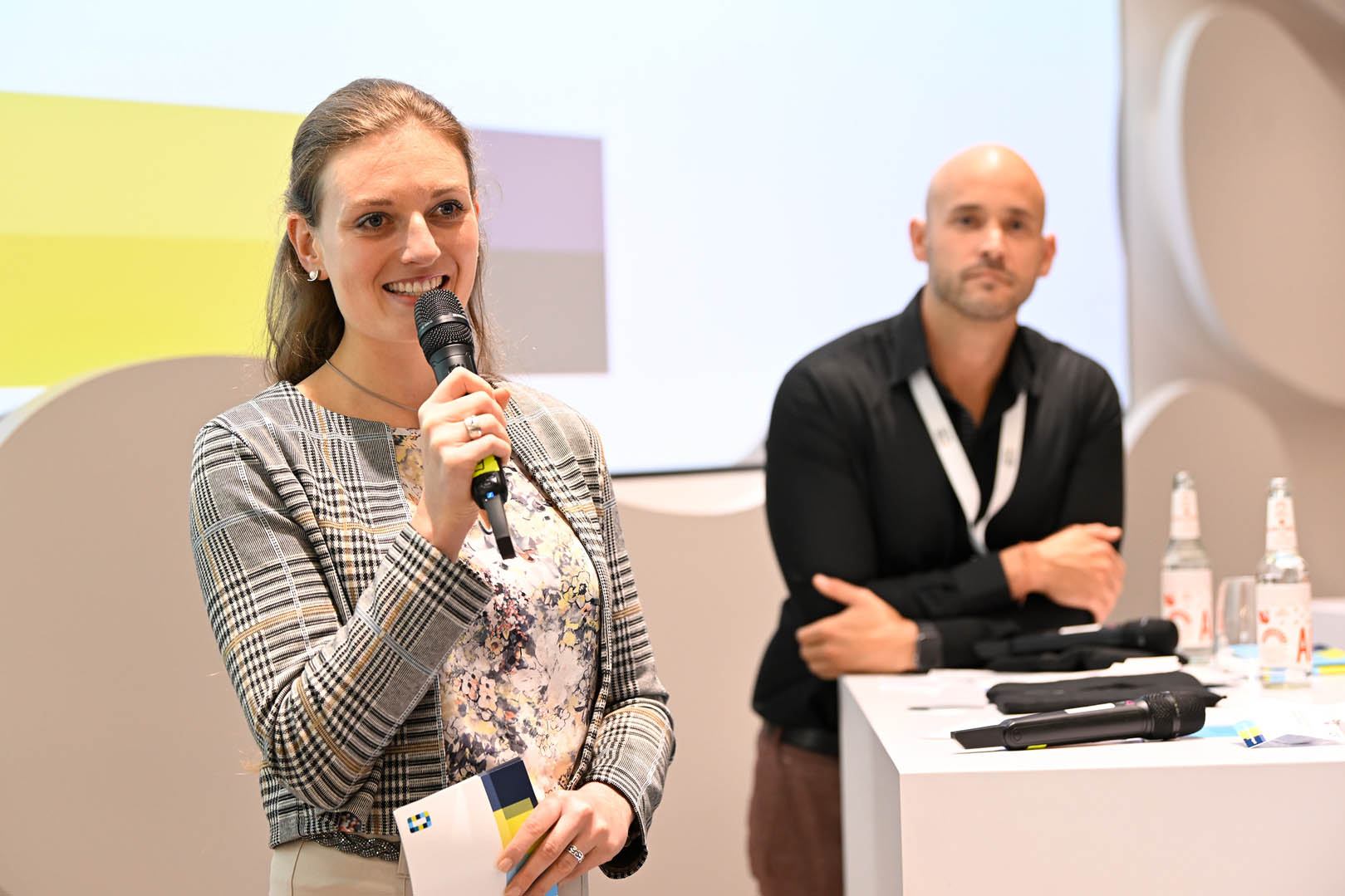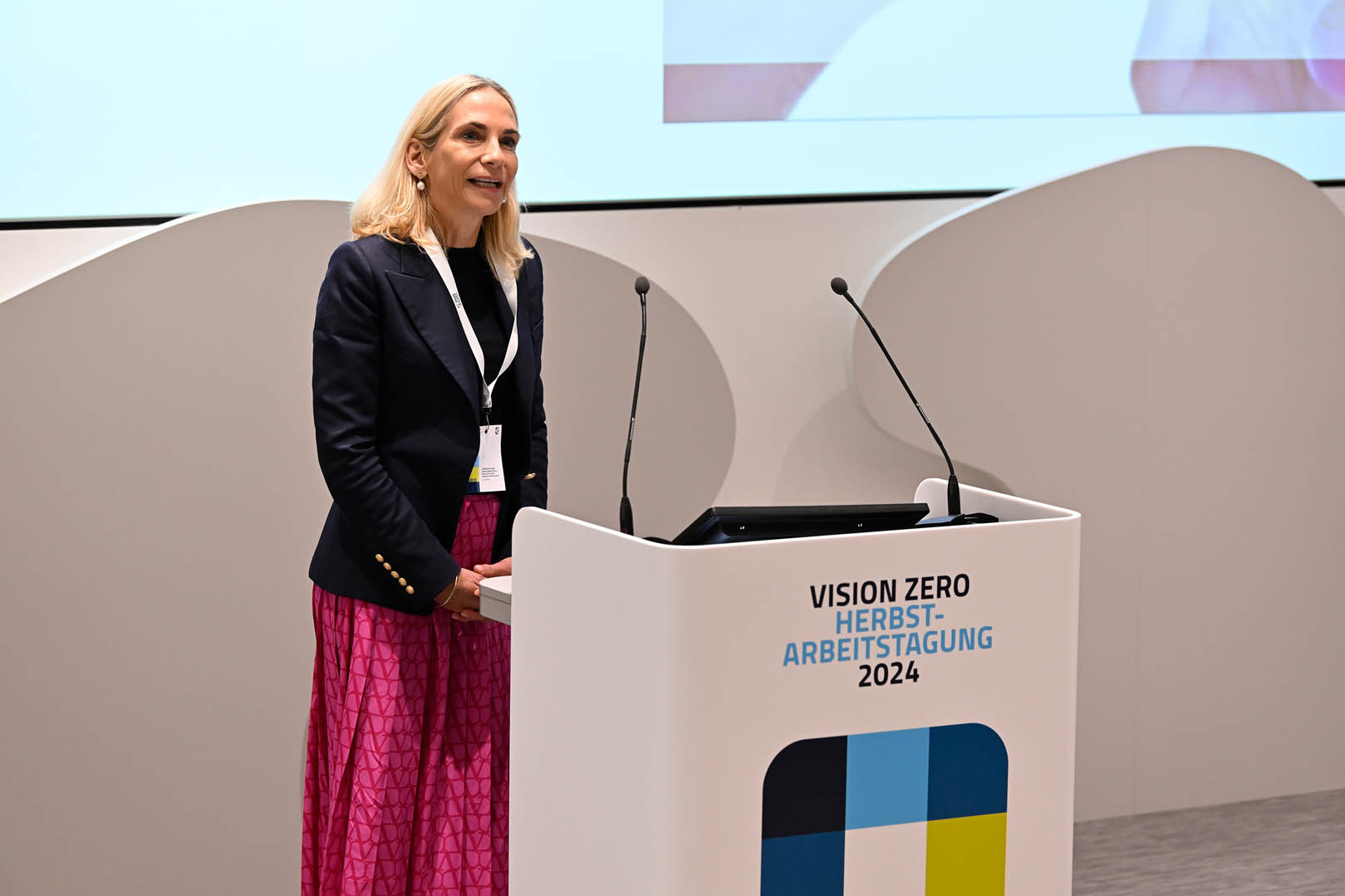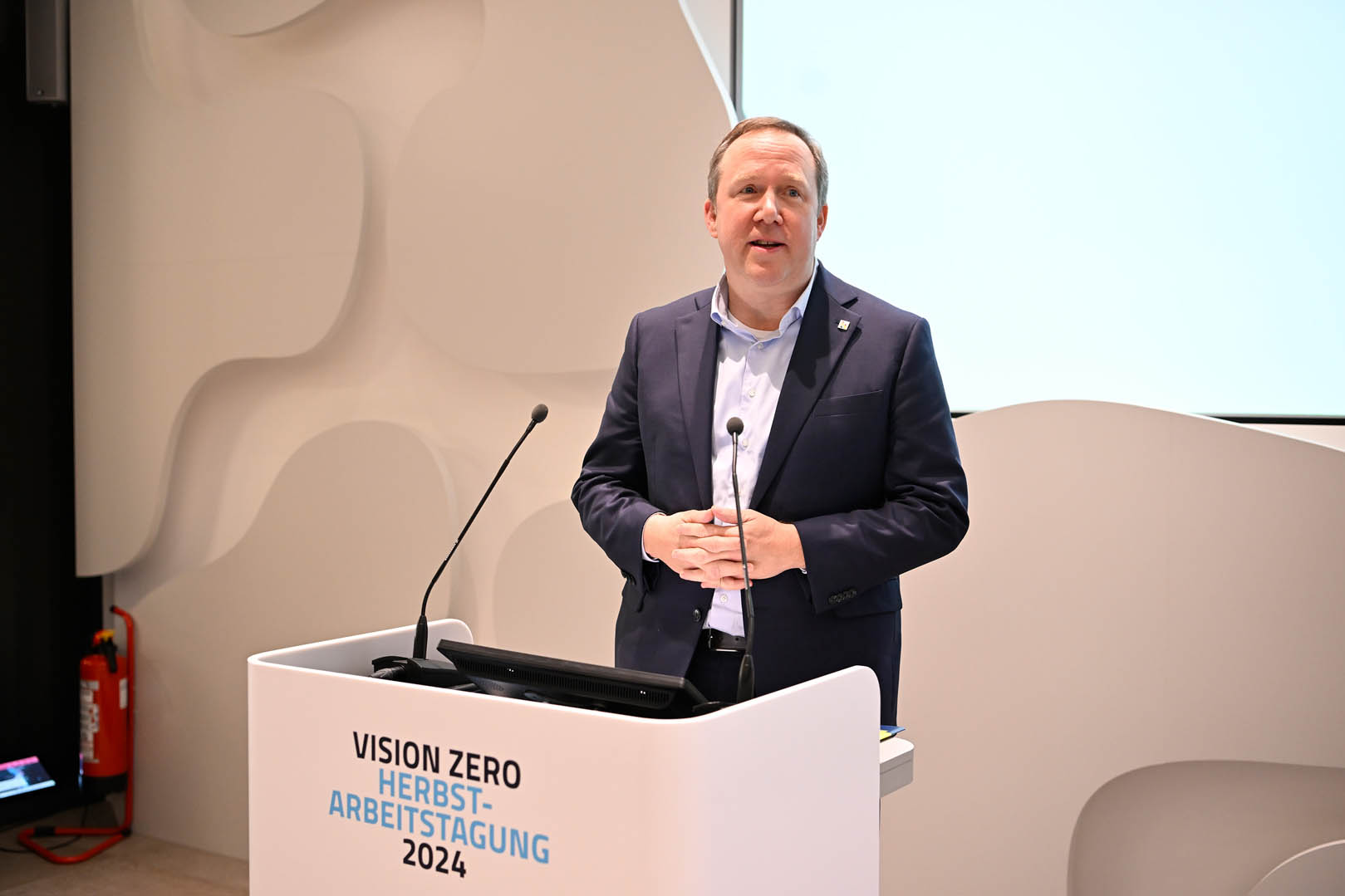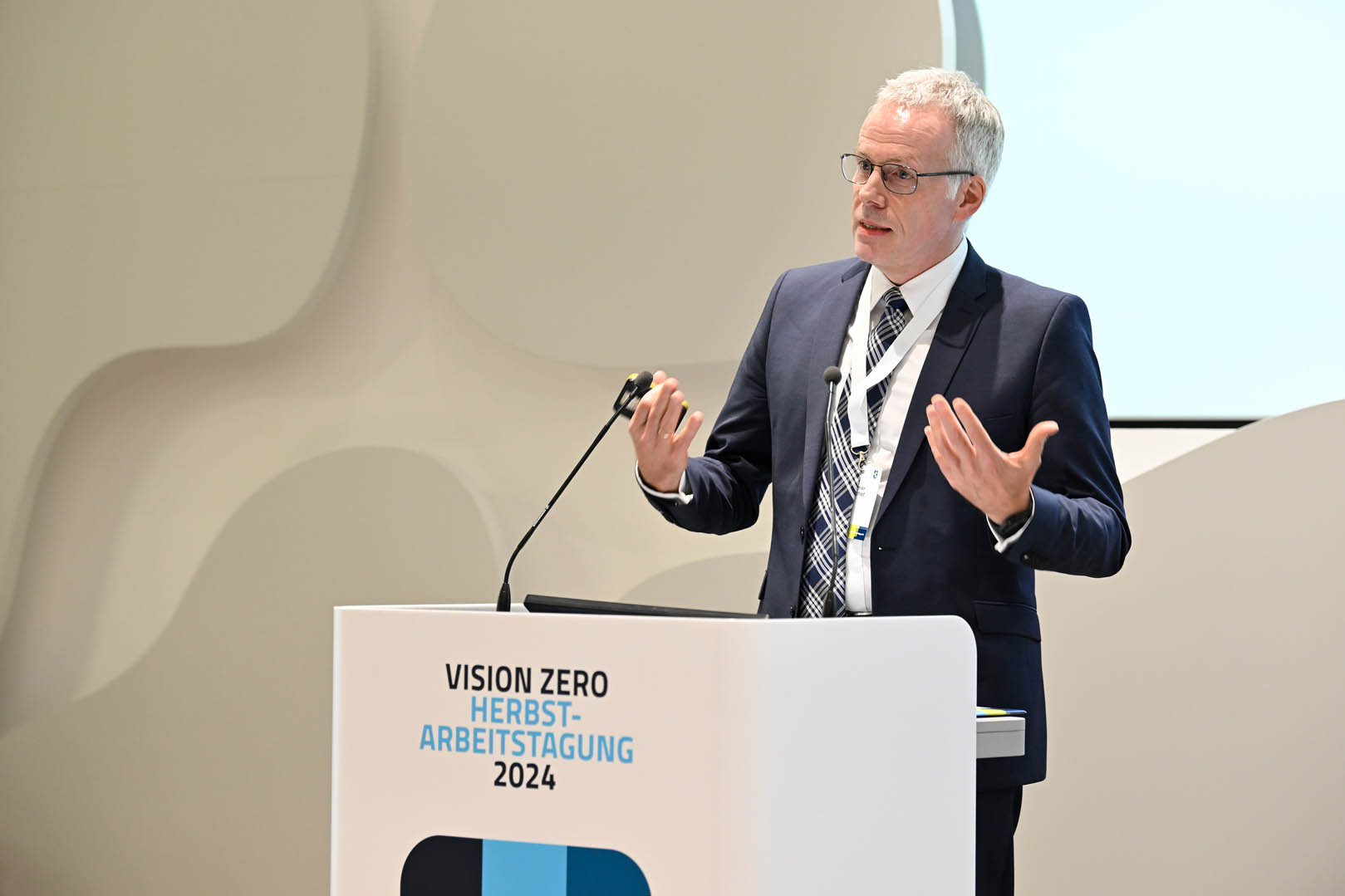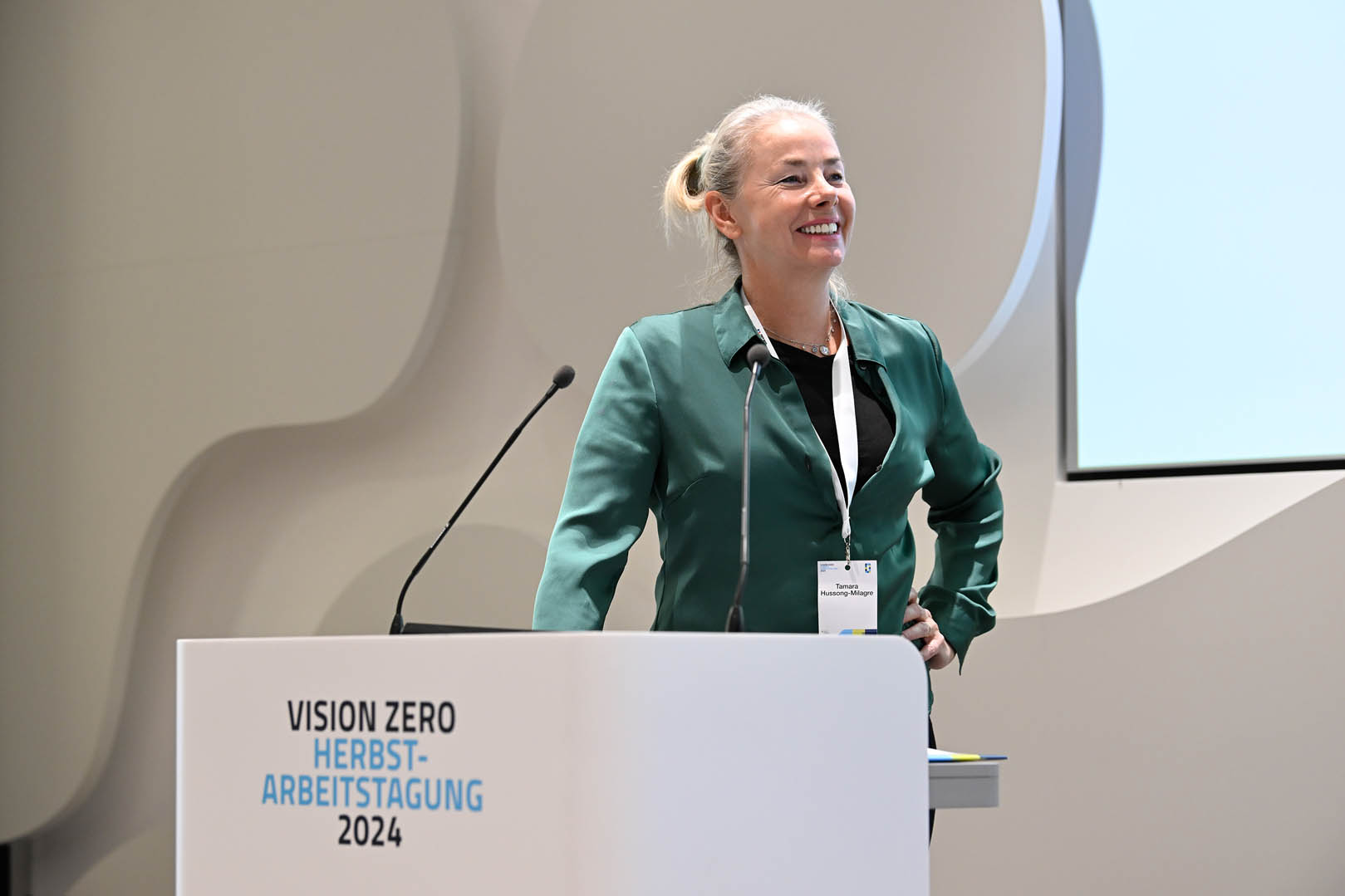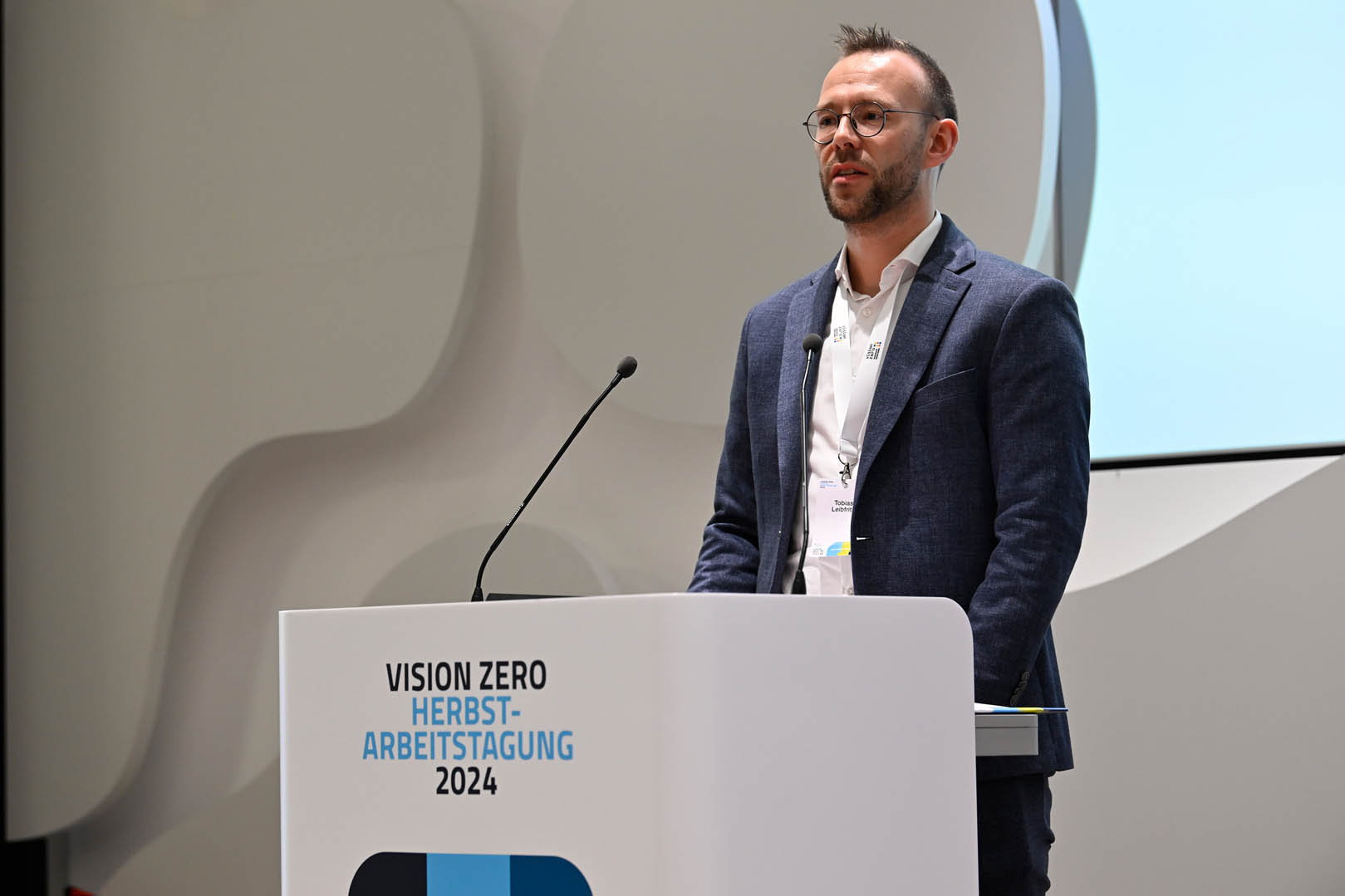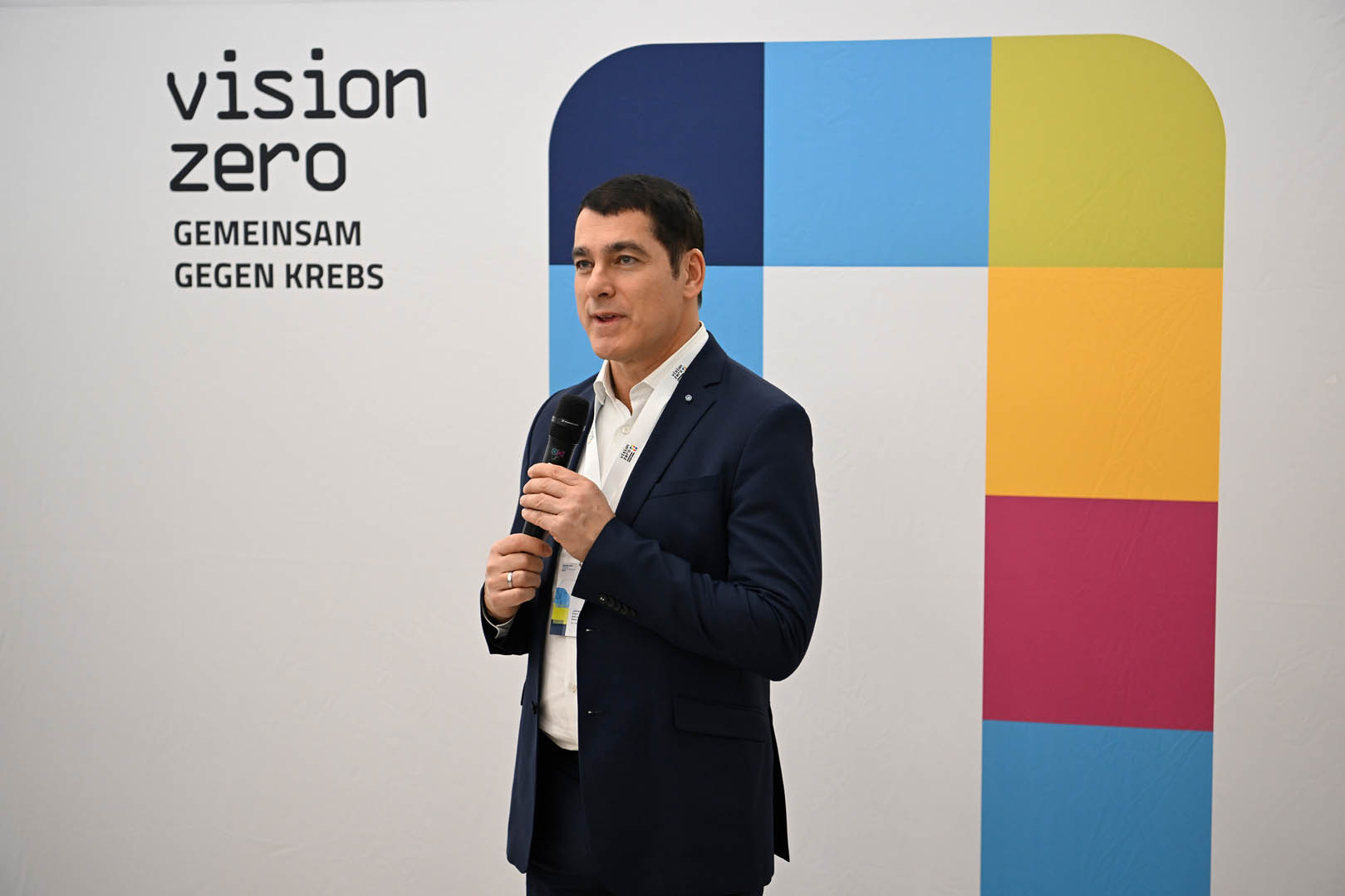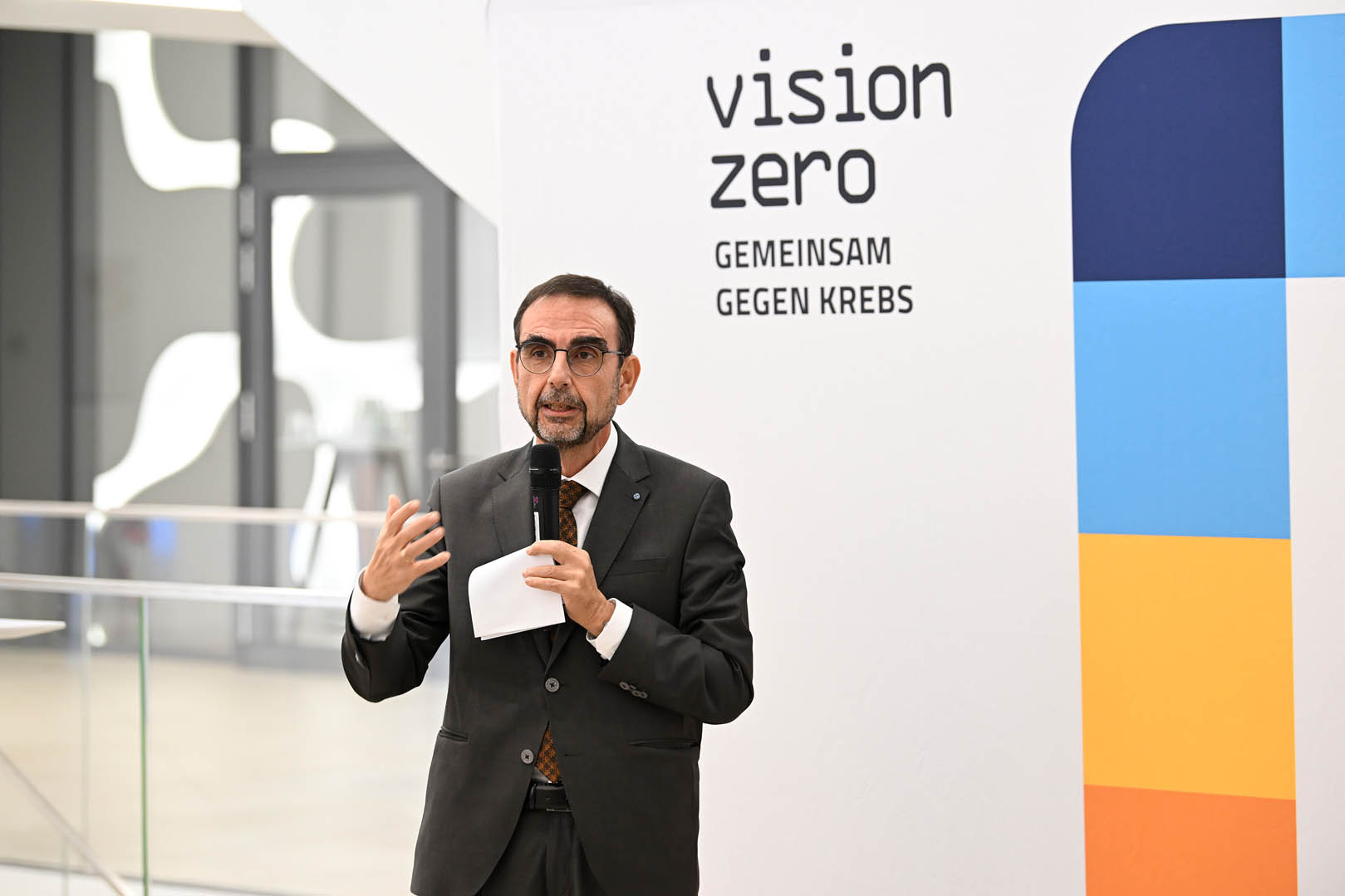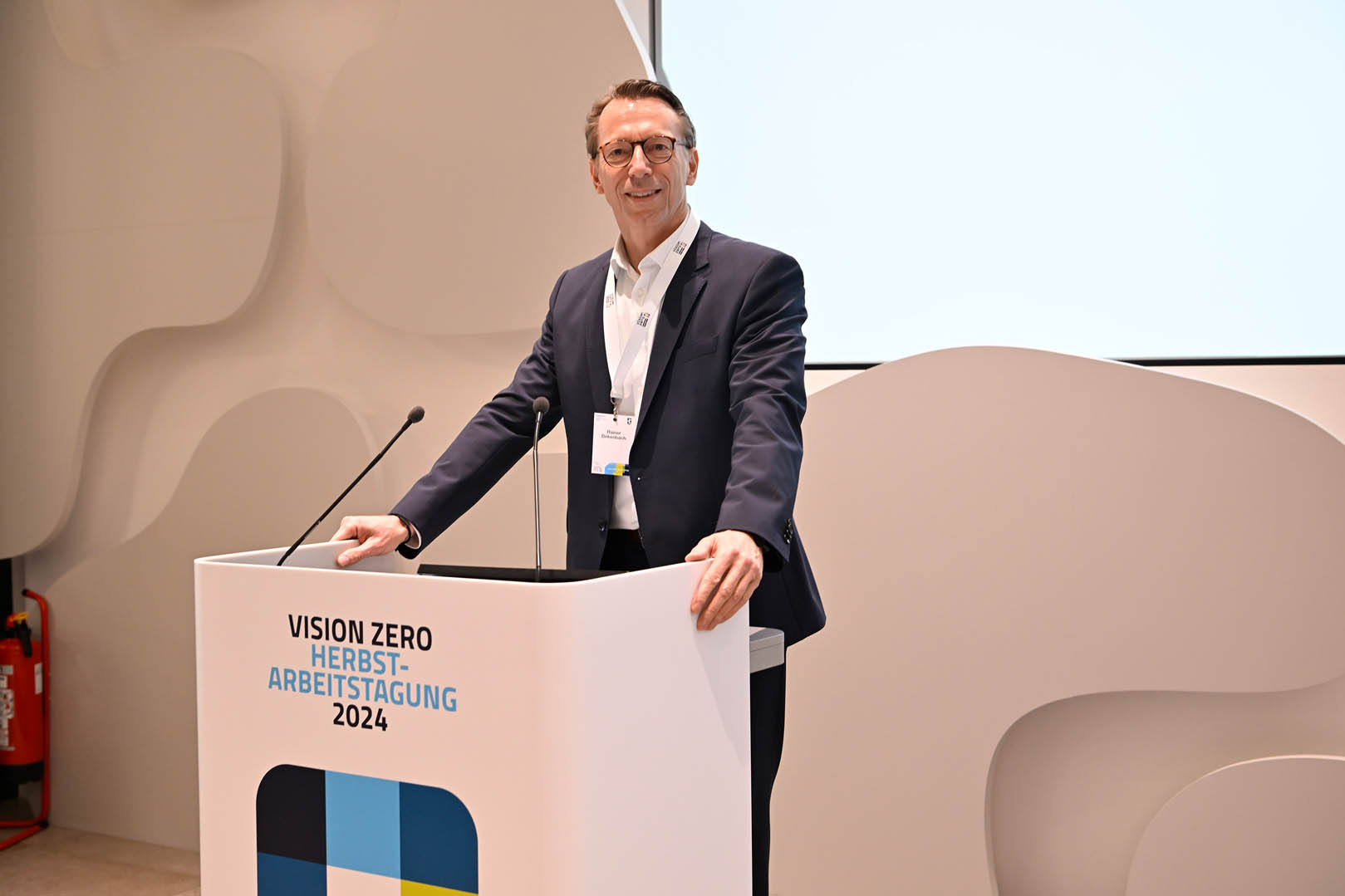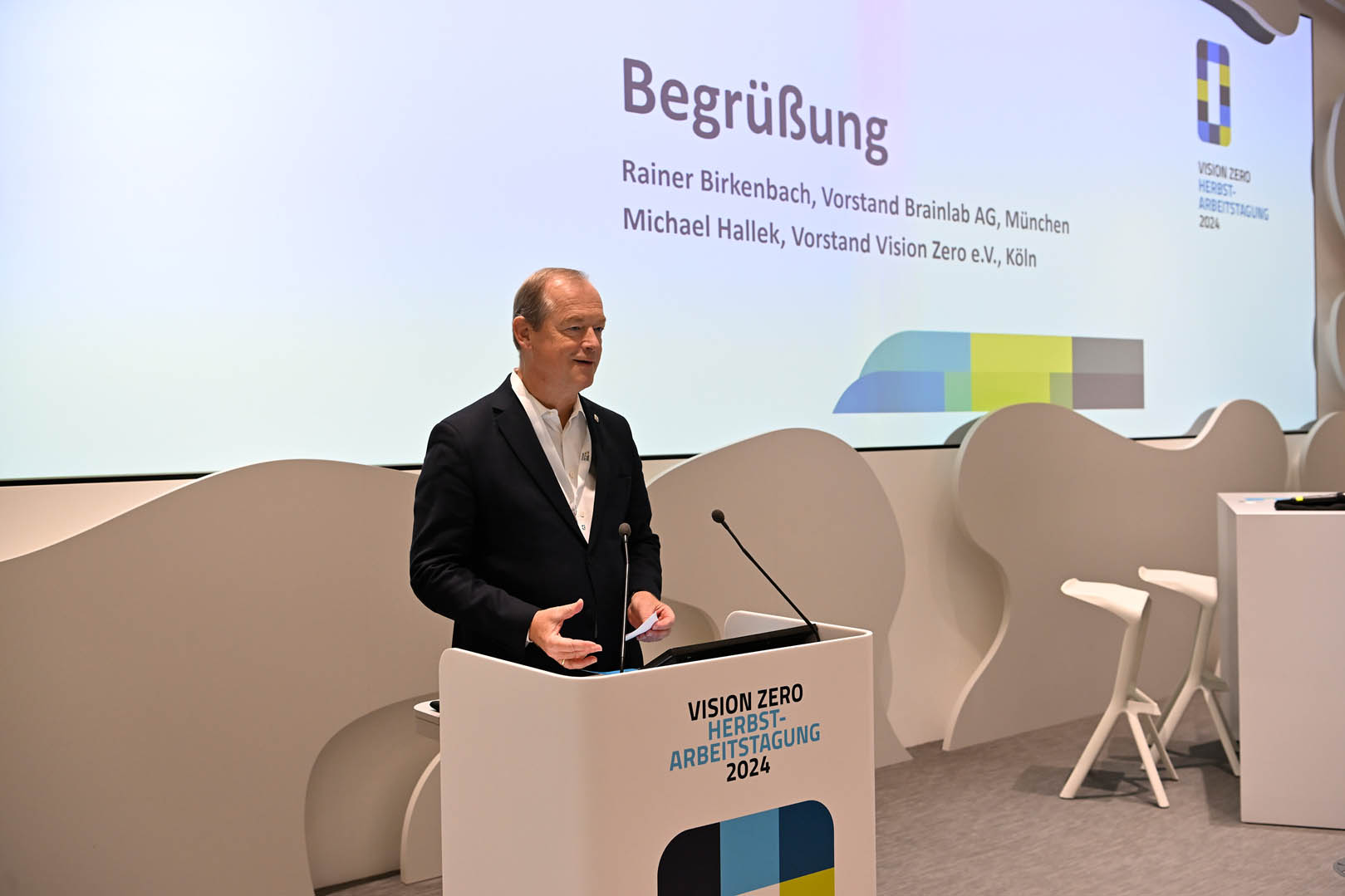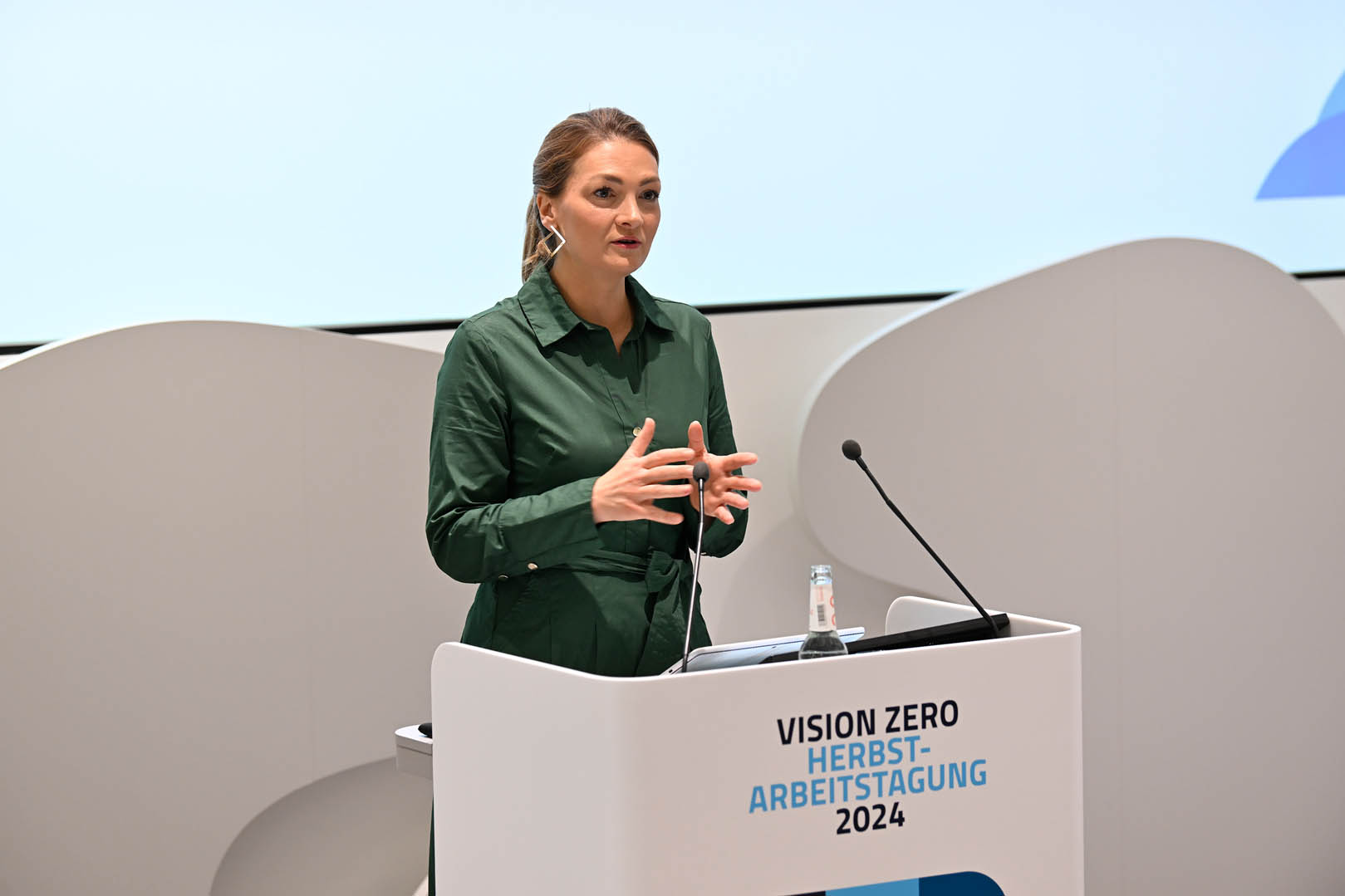VISION-ZERO E.V. - TOGETHER AGAINST CANCER
AN INITIATIVE FOR A NEW APPROACH IN ONCOLOGY
1. VISION STATEMENT
We are committed to bringing the number of avoidable deaths from cancer close to zero.
For years, the statistics have painted the same sad picture: in Germany, around every fourth citizen dies from cancer – that’s 600 people per day, 220,000 per year. But a large number of these deaths could be avoided through better prevention and early detection, more precise diagnostics, the faster transfer of therapeutic innovations into practice, and access to care across the country that conforms to the guidelines and is individually optimised. Our goal is therefore to make sure that the potential held in these approaches is fulfilled and consequently to reduce the number of avoidable deaths from cancer significantly - ideally to zero. This “Vision Zero” is based on extraordinarily successful models in the fields of worker safety and in road traffic; over the past decades, the number of road deaths has been reduced by 90%, even as traffic has greatly increased. We believe that we can be just as successful in oncology and that cancer does not have to be one of the main causes of death in the future if we join forces and focus on this issue.
2. MISSION STATEMENT
Our path to Vision Zero: We involve ourselves in the issues and projects that bring us closer to our goal.
Whether people get cancer to begin with, and whether they can live with it or die from it, depends on many factors. There is therefore not just one strategy or measure to avoid deaths from cancer. Instead, we must turn every stone on the way to Vision Zero and identify what approach is the most successful and sustainable path to the goal:
Key Issue Prevention
Switching to a healthy lifestyle by itself would avoid some 40% of all cancers; this especially relates to the issues of healthy nutrition, smoking, sedentary lifestyle and alcohol abuse. We also see a great potential in vaccines against viral infections as well as in national risk-adapted cancer prevention and early detection programmes. Analogously to the successful anti-AIDS campaigns, it is necessary to bundle all resources in order to come a big step closer to the Vision Zero goal.
Key Issue Research and Translation
Germany urgently needs connected structures in the health field in which basic research, clinical developments and practical applications are closely integrated. This would give patients much earlier access to innovations in precision diagnostics and in treatment. Poor incentive structures that favour classical “silo thinking” must become a thing of the past.
Key Issue Access to oncological care
Patients must be certain that they are receiving treatment based on uniformly high-quality standards regardless of their place of residence, health insurer and/or own health competence. We therefore work to ensure that in Germany, top-level oncological know-how is available across the territory and that patients everywhere can obtain care that is in conformance with the guidelines, is of a high quality and is personalised. Furthermore, we promote the testing in studies in Germany or Europe of important cancer drugs and their subsequent production locally. This is the only way to ensure a safe supply and prevent supply bottlenecks.
Key Issue Knowledge-generating care
Whether in a comprehensive care centre or a GP’s practice, every examination or treatment of cancer patients generates huge amounts of data. Structures are needed to collect and analyse this data in a timely manner. We are strongly committed to building these quickly. The findings from this use of the data should be available to all care providers in oncology, and the treatment experiences of every singly patient should be recorded and scientifically assessed. This would create knowledge-generating care that would contribute to continuously expanding the know-how in oncology, ensuring that every patient receives the optimal care for them – regardless of individual factors.
For all cancers that cannot be avoided through increased prevention and early detection measures, the budget for precision diagnostics and innovative treatment concepts must be significantly increased.
Key Issue Patient competence
Cancer patients have their own perspective on their disease and another sense of what is important than physicians and therapists. We promote the stronger inclusion of these perspectives in research and in clinical settings and the recognition of soft factors such as quality of life, combining treatment and daily life, etc. as treatment goals. A further important issue for us is that patients should be able to inform themselves about their disease, their treatment options and the diagnostic and therapeutic offering in the care centres quickly and competently. We are working on laying the groundwork for this.
Key Issue Digitalisation
Telehealth shrinks geographic distances, artificial intelligence supports doctors in diagnoses, computer-controlled analyses sift through datasets for information that could be relevant to treatment, and apps can greatly improve the management of cancers and patient compliance. Modern medicine is no longer conceivable without digitalisation. This is especially true in the field of oncology, where huge amounts of data are gathered both during diagnostics and during treatment. We promote the organised collection and analysis of this data by all medical care providers (GPs, specialists, clinics etc.) and the central and continuous availability of this data for the benefit of cancer patients and scientific research, with due respect for the data protection regulations.
3. HOW WE SEE OURSELVES
Vision Zero sees itself as a think tank and wants to contribute to the substantial improvement of prevention and early detection, the sustainable promotion of precision diagnostics and innovative treatment concepts, and the development of models for decision-makers in health policy.
To achieve these aims, we establish interdisciplinary working groups that investigate undesirable trends, learn from European partners and initiate the necessary debates, develop a network of competence and decision holders, organise events, promote concepts and pilot projects, draft publications, and support other institutions and initiatives in oncology, particularly the German government’s “Decade against Cancer”.
We invite all persons and institutions interested in the subject of oncology or involved in the treatment of cancer patients to join us and support us in word and deed.
4. TEN THEMATIC FIELDS FOR THE VISION ZERO
1 / EARLY INFORMATION:
Health prevention should be a topic in schools across the country and should become a fixture of the curriculum. The dangers of smoking and the protection afforded by vaccines (especially HPV) should be major focus points.
2 / NUTRITION:
Information about the importance of healthy nutrition should be continuously provided: at school, in apprenticeships, through health insurance companies, in pharmacies, in doctors’ practices and in the media. The risks of alcohol and excessive sugar and fat consumption must become even clearer for the citizens!
3 / PREVENTION:
Better results can be achieved through effective incentives. Smoking is demonstrably one of the major causes of cancer and should therefore be consistently curtailed; advertising for tobacco should be banned. Tobacco taxes should be adapted or increased. Additionally, more people should - in coordination with their doctor - be encouraged to take preventive vaccines, such as HPV against cervical, mouth and throat cancer. Improved bonus systems that create incentives to move more should also be considered. All prevention programmes should be optimised through regular evaluations.
4 / EARLY DETECTION:
GPs must provide more information on early detection; regular questioning about cancer cases in the family must become obligatory. Successful concepts from abroad, like the invitation to colon cancer screening, should be adopted (in the Netherlands, more than 70% of those invited go to the screening, in Germany probably just a fraction).
5 / DIAGNOSTICS:
Compared to other European countries, there is room for improvement in the rate of innovative, precise diagnostics, particularly broad molecular testing. Funds are needed for the quick expansion of country-wide networks for molecular diagnostics and their implementation. This is a precondition for the individualised, tailored treatment concepts that directly benefit the patients. The key here is close collaboration between research institutes, university clinics, qualified hospitals, and practices focusing on oncology.
6 / TREATMENT:
The goal must be: higher survival rates and better quality of life! To achieve this, the path of new treatments for all cancers from research to clinical practice and so to the patient must be faster. (See also “Neben der Primärprävention haben Arzneimittel das größte Potenzial, die Krebsmortalität zu senken" - “Besides primary prevention, drugs have the highest cancer mortality-reducing potential” -, an article in the Publications rubric.
7 / DIGITALISATION:
All patients have the right to their data! It must be ensured that GPs, specialists and clinics enter the comprehensive patient data in an organised form and in a timely and automated manner into a digital patient file in order to optimise care. At the same time, scientific evaluations of the anonymised data would contribute to providing better care to cancer patients in the future.
8 / PATIENT COMPETENCE:
Patients and their self-help organisations must be better included in the process! Doctors should view affected persons as equal partners in the treatment. Having one’s personal wishes included is an important basis for the success of a treatment. Patients’ confidence and competence must be sustainably strengthened.
9 / PSYCHOTHERAPEUTIC CARE OF CANCER PATIENTS AND THEIR RELATIVES:
We need more, and better-qualified, carers to ensure the care of cancer patients and their relatives across the territory. Psychological aspects are a major factor of our being and our health.
10 / NURSING AND REHABILITATION:
The role of nursing in cancer treatment has developed very positively in recent years from a subject and content perspective. Structurally, more jobs should be added to the nursing offering. The further education programmes for oncology nurses and the expansion of academic nursing degree programmes mean that today, graduates are integrated on many levels and with a high degree of responsibility in the daily treatment and care setting. For people with cancer, they are a reliable and knowledgeable support. Political support and the further development of specialised nursing guarantee, through expert oncology nurses, improvements for patients and their relatives in overcoming daily routines and communication even in difficult cases, especially in chronic cases.
To finance the proposed measures, the experts suggest a prevention fund financed by a special levy on cigarette packs, for example. With one "prevention euro" per standard pack, a budget of € 1 billion could be built up within a few years - € 100 million per topic area.
